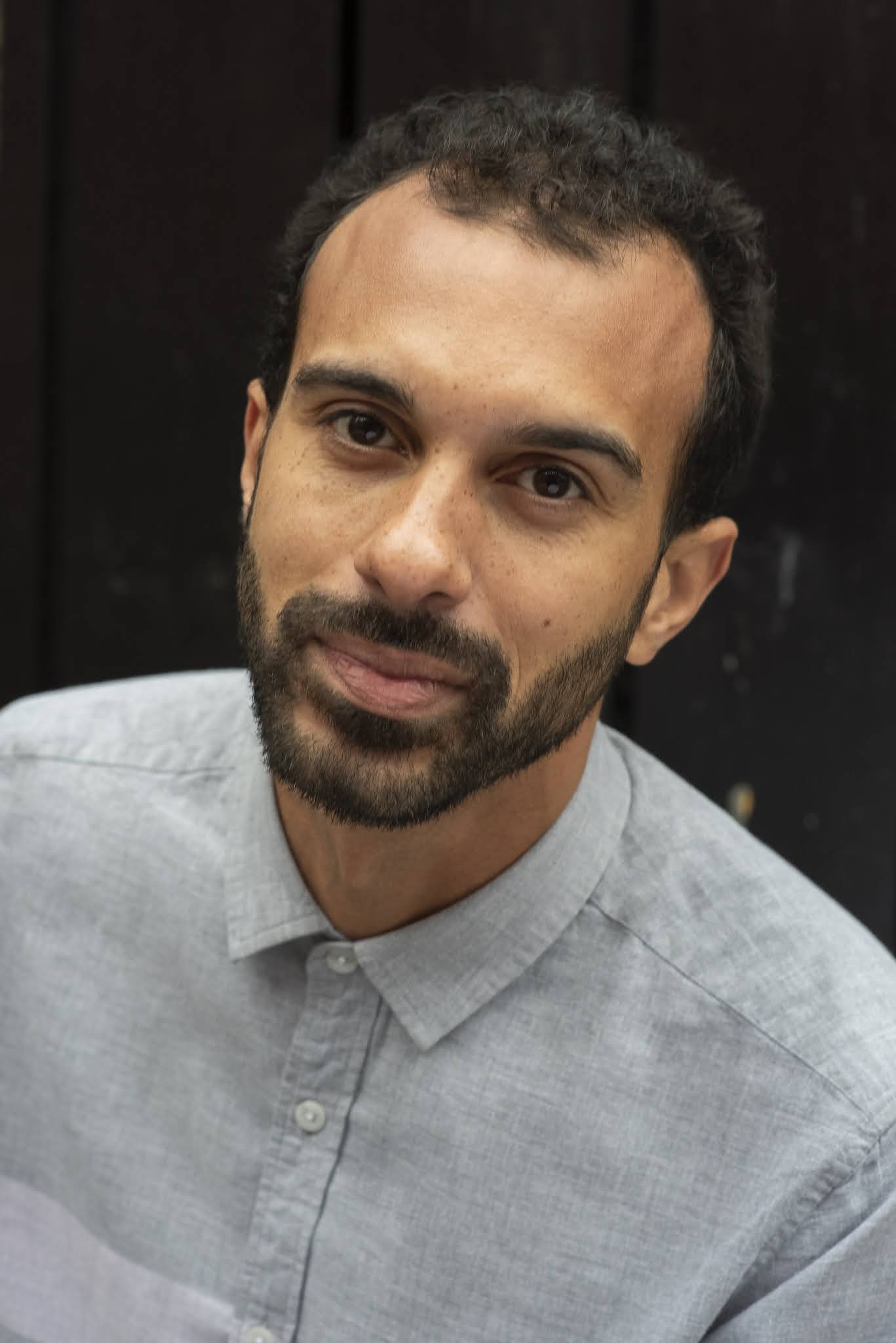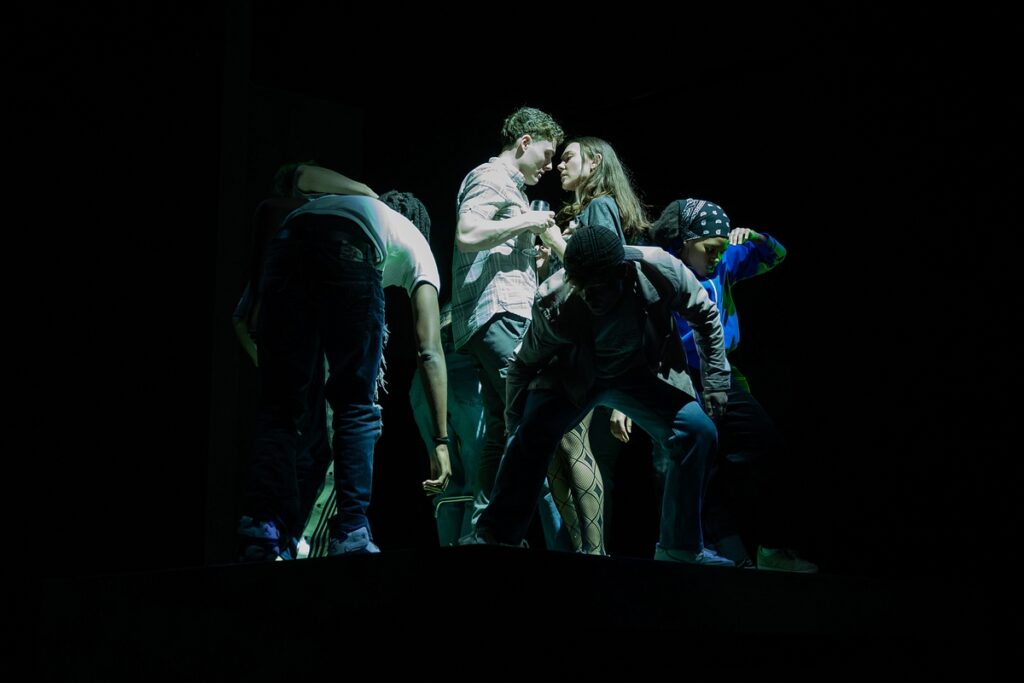We caught up with director Matthew Xia ahead of the opening night of his production of Michele Lee’s Rice at the Orange Tree Theatre. The ATC (Actors Touring Company) co-production opened last night (13 Oct) as part of the theatre’s Recovery Season.
Currently the Artistic Director of ATC, Xia has directed plays at Orange Tree, Hampstead Theatre, Manchester’s Royal Exchange and the Young Vic, where he directed the acclaimed revival of Blue/Orange starring David Haig and Daniel Kaluuya.
We talked about what means to be a touring company in locked-down world and the democratic balance of the in-the-round format.
Interview with ATC Artistic Director Matthew Xia
Hi Matthew, thanks for taking the time to talk to us as you prepare for Rice, ATC’s Co-production at Orange Tree Theatre. This is your third time directing at OT, following Amsterdam and Blood Knot. What is it that keeps you coming back to OT?
I love the Orange Tree Theatre. I’m a fan of working in the round, possibly due to my time spent at the Royal Exchange and the Young Vic, yet with the OT you get this in the round experience where you can see the eyes of the audience members and so it makes for an incredibly intimate and honest space. It’s a wonderful space for speaking directly to the audience, and for what I call ‘story telling’ theatre where there is a strong sense of narration. It would be remiss of me not to speak about the brilliant people who work there, so much of making theatre is reliant on the people you make it with and the Orange Tree team are a warm-hearted and considerate team.
What can you tell us about Rice and your production?
Rice is a play by the Australian playwright Michele Lee. It takes two women – who both have heritage in other parts of the world (India and China), and wildly different lifestyles, and places them in an unusual friendship whilst exploring themes of family, global food production, ambition, migration, sacrifice, expectation and failure.
Our production, at the writers’ request (it’s written into the play) asks two actors to play these central characters – Nisha and Yvette – and everyone else who features in their life. This was a huge attraction to staging this play, its theatricality, and the demands it places on the actors to deliver these virtuosic performances across such a range of characters.
There are two Asian-Australian women at the heart of the play – what’s it like telling this story for a London audience?
A big part of the work I’m hoping to do with the productions we create at Actors Touring Company is to highlight the similarities, the shared humanity across continents. So, whilst this play is acutely Australian – the ideas it explores ring true for a British audience. Michele has written a play that easy travels across national borders, and the themes are universal enough to work here without additional context.
OT is an extremely intimate space, even more so with the reduced capacity due to Covid precautions. What kind of opportunities does that present when directing in that kind of space?
I love the ability to turn and look an audience member directly in the eye, it’s a feature I’ve utilised a lot through Amsterdam (our last co-production with the Orange Tree) and Rice. It feels connected to the griots who would stand in the centre of a circle of onlookers and share stories and poems at a proximity close enough to see the beads of sweat forming on the performer’s foreheads. It allows for less ‘us & them’ and we can really hold the audience with us, and breathe with them, there is nowhere to hide in the round, I find it an incredibly democratic space.
 |
| Ameera Conrad, Sarah Lam and Matthew Xia in rehearsals for Rice at the Orange Tree. Photo: Helen Murray |
How has it been working with Zainab Hasan, Sarah Lam and Michele Lee?
Zainab and Sarah have worked on this production with such generosity and focus, they both have stories in their own lives that connect to the play and have used these experiences to find several access points to the characters. The weight of responsibility to each other, and the story, is always present in a two-person play and with that in mind they have gone above and beyond to ensure they are match fit for this production.
With Michele it has been unfortunate that because of the Covid-19 restrictions she hasn’t been able to join us in person. We have, however, had a number of conversations remotely both prior to starting rehearsals and also in the rehearsal room. I’ve really enjoyed speaking with Michele and I learn more about the play every time we talk – I guess it has been a shame to not have more informal chats as due to the nature of working remotely across time-zones the conversations have to be structured to make most use of the time.
Has your vision for the production changed since beginning rehearsals?
I guess the way it has changed is that I assumed the show would be quite light with regard to ‘production’ elements – and by that I mean the way sound and lights work with the text. As we rehearsed the play I realised that we jump character, time and place so often that it would be useful to give the audience clearer indications of those shifts. Because the shifts happen so fast there is no time for the actors to change costume – which would be the clearest indicator of a change – so instead we are reliant on a bunch of brilliant experts in movement, dialect, lighting, composition and sound design working with us to help us make sense of the many jumps in the play – and to help make this as clear as possible to audiences.
You’ve been artistic director of ATC since 2019, how has it been navigating the rocky landscape of the past 18 months?
It’s been a very tumultuous period for ATC, as a touring company – without a venue. We have had to investigate what it is to be a touring company in locked-down world. The focus for us was on our staff and our relationship with the freelancers we work with – meaning a lot of energy has gone into collectivism and working with our colleagues at other touring organisations to ensure that the way we return to making work is more compassionate than what had gone before. I’ve also been focused (as always) on ensuring that the sector continues moving towards more equitable models with regards to who gets to access theatre – both as makers, and consumers. The reinvigoration of the Black Lives Matter movement has also been something at the forefront of my mind and with this in mind I have contributed to a number of committees, panels and conversations around the way Black people and other global majority groups are treated in British theatre.
What can we expect next from ATC?
We’ve been busy over the pandemic commissioning new work by writers such as Yasmin Joseph, Nessah Muthy, and Mojisola Adebayo – we’ll continue developing these plays as well as gearing up for the national tour of Rice in 2022.
Finally, how would you describe Rice to someone considering buying a ticket for the show?
I’d probably say something like the Australian Stage did: “a heady broth of gender, generation and globalisation”. It’s full of funny observations and performed with such skill by the two performers. For our first preview we had audience members laughing and crying, it is a complete pleasure spending time with Nisha, Yvette and the many characters portrayed on stage.
Rice is at The Orange Tree until 13 November. For more information visit https://orangetreetheatre.co.uk/whats-on/rice/about
















